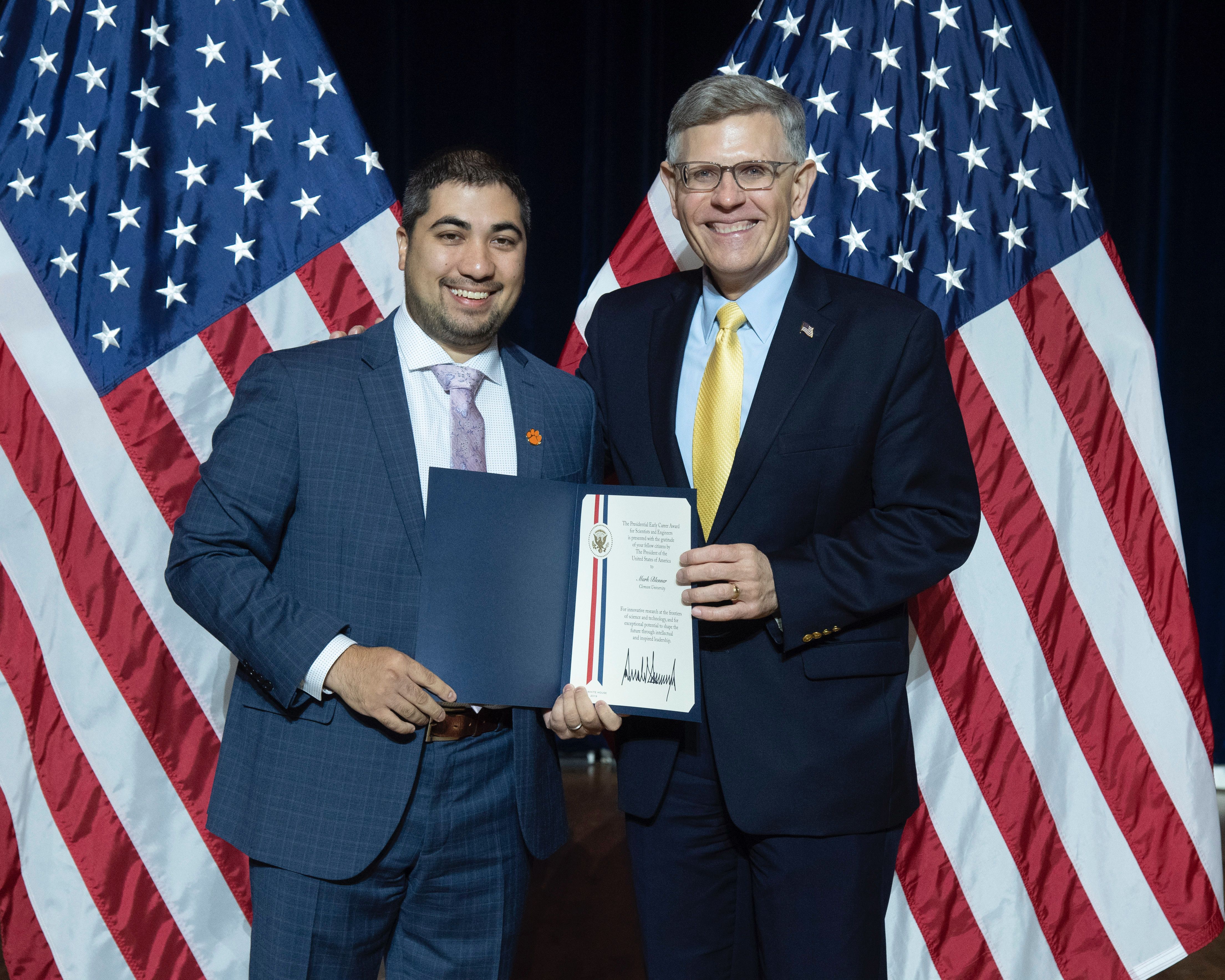Mark Blenner ’04, the McQueen-Quattlebaum Associate Professor of Chemical and Biomolecular Engineering at Clemson University, has some new accolades and accomplishments to add to his CV. Named Clemson’s Junior Researcher of the Year for 2019, he also recently spent a sabbatical with NASA’s Ames Research Center in Silicon Valley, California. And, perhaps most notably, in July 2019 he was awarded the Presidential Early Career Award for Scientists and Engineers, or PECASE.
 Bestowed by the National Science and Technology Council, the PECASE identifies outstanding scientists and engineers who advance science and the missions important to participating U.S. agencies. NASA nominated Blenner for his work that could someday help enable missions to Mars.
Bestowed by the National Science and Technology Council, the PECASE identifies outstanding scientists and engineers who advance science and the missions important to participating U.S. agencies. NASA nominated Blenner for his work that could someday help enable missions to Mars.
“I feel very fortunate and lucky to win it,” he says. “It helped fund additional work with NASA, so that’s going to extend our project a couple more years.”
Blenner and his team are working to engineer yeast to convert respiration carbon dioxide, algae biomass and urine into 3D printable plastics and nutritional omega-3 fats, a process known as space biomanufacturing. On missions to Mars, astronauts could use the plastics to make tools, and the omega-3s could help maintain health.
He explains: “NASA needs to produce products to help astronauts survive in a setting where there are not a lot of resources available and where bringing resources from Earth is at an incredibly high premium … I always say it’s like extreme camping, where you’re stuck with using whatever’s in your backpack and what’s around you.”
Another aspect of his research, sponsored by the Defense Threat Reduction Agency, focuses on creating sensors that can detect the presence of nuclear weapons, which emit a unique type of radiation. By looking at the environment, Blenner and his colleagues are able to detect the responses of plant life.
After graduating from Manhattan, Blenner went on to attend Columbia University for his Ph.D.
“I was able to do research through all four of my years at Manhattan; I think that was a big factor in my wanting to go into a career that involved research,” he says.
At Clemson, Blenner leads a program aimed at increasing diversity in engineering.
“In chemical engineering, as in most STEM disciplines, there’s just not enough of a pipeline of historically underrepresented groups,” he says. “We can try to create a more supportive environment for those who make it this far into a Ph.D. program, so that they can be more competitive and likely to go into academia and become role models themselves.”
Looking beyond the awards and accolades, this Jasper is focused on training the next generation of researchers.
“I think the most impact my career’s ever going to have,” he says, “is the people that will get trained in my lab.”